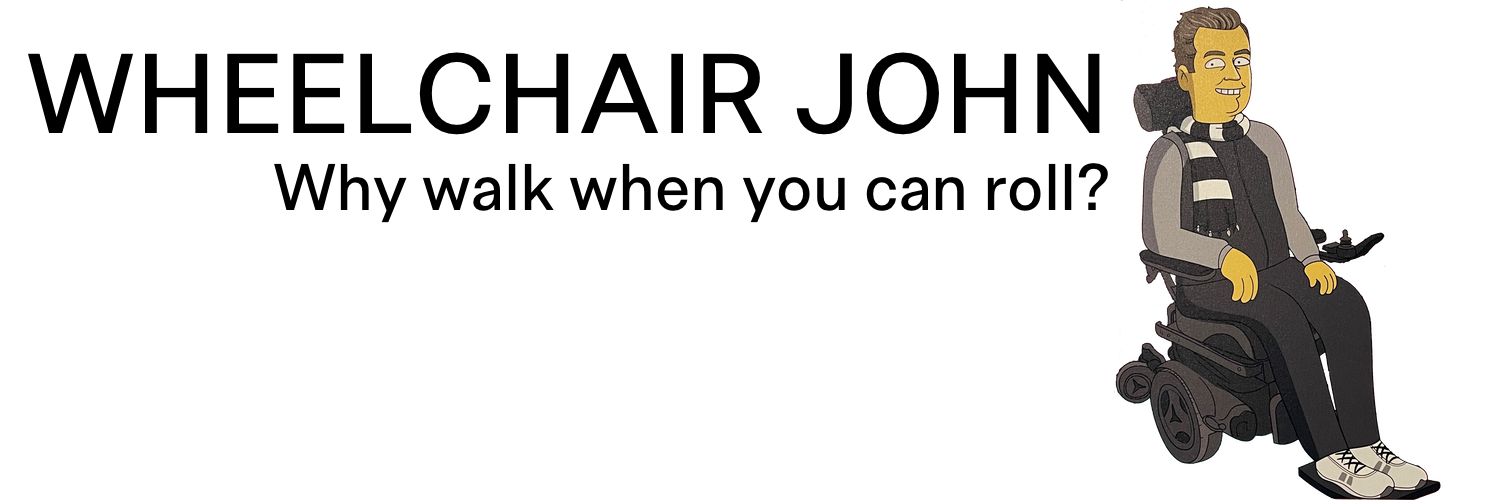Introduction.
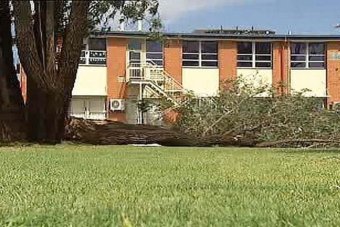
A tree fell on me at Cedar College Northgate on September 11, 2009.
Seven blogs contain details of the accident (this is the second blog)
- Cedar College Northgate – sports day and tree
- Spinal Cord Injury and no visits from the school
- They said what? and withdrawing help
- Safework SA and victim impact statements
- Cedar College pleads guilty
- Relationship breakdown and suing Cedar College
- Forgiving Cedar College and the future
First night in the hospital with a spinal cord injury.
I had a conversation with Wendy, a church minister in the Salvation Army. I’ve known her for 25 years. She explained that we were at the Royal Adelaide Hospital, and a tree had hit me. I didn’t believe her as I felt great, even to the point of feeling fantastic. This is my only memory of events after the accident, and the next two weeks were ‘fuzzy’. Around 8:30 pm, over nine hours after being hit by a tree, the surgeons commenced an operation to relieve pressure on my spine. I had a spinal cord injury. After arriving back in ICU at 5 am, my wife goes home to sleep.
30 days in ICU.
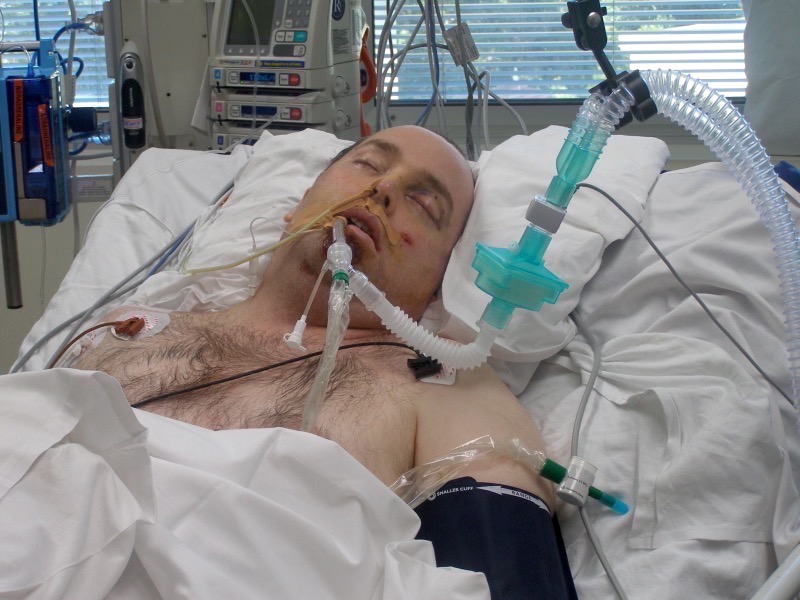
I slept for the majority of each day. Often, I was in pain and required assisted ventilation for weeks due to the injuries to my chest. Pneumonia started developing on the third day, and during my time in ICU, there were regular suctions performed to remove fluid from the lungs. A breathing tube was required for eleven days and finally replaced by a tracheostomy. However, the procedure failed, and CPR was performed for three minutes.
My mind was struggling with the spinal cord injury, the future and the drugs. One night, I awoke and stared at the ceiling. A vast arm suspended from the roof held multiple pieces of equipment. It was terrifying to think that the arm was going to fall on me. I could not talk, and the room was empty, and I sat there in fear for hours, hoping nothing would happen.
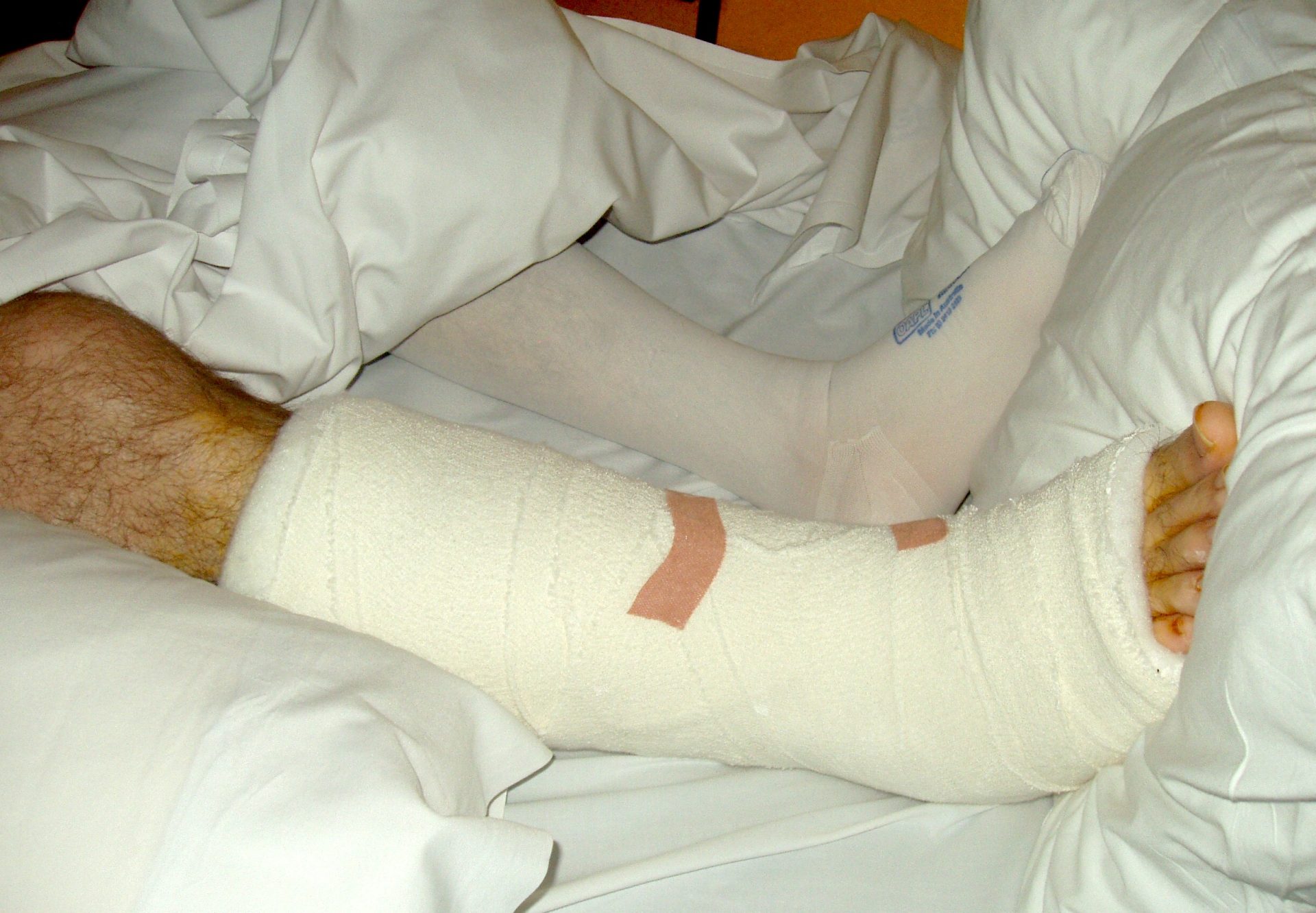
None of the ICU staff would talk about my future, and I assumed there was an unhappy future ahead of me. My leg, ankle and collarbone remained broken three weeks after the accident, as the doctors gave priority to other parts of my body, including the spinal cord injury, heart and lungs.

Talking was impossible as there were tubes in my throat that were constricting my vocal cords, and this was frustrating. Due to a broken collarbone, I wrote left-handed, which was ineligible, so I pointed to letters of the alphabet. Staff regularly came to my room and removed chairs, only to return them a few hours later. Visitors used the seats to sit by the beds of other ICU patients as they passed away. It happened too often, and I kept an eye on the staff to ensure they didn’t place chairs from other rooms next to my bed.
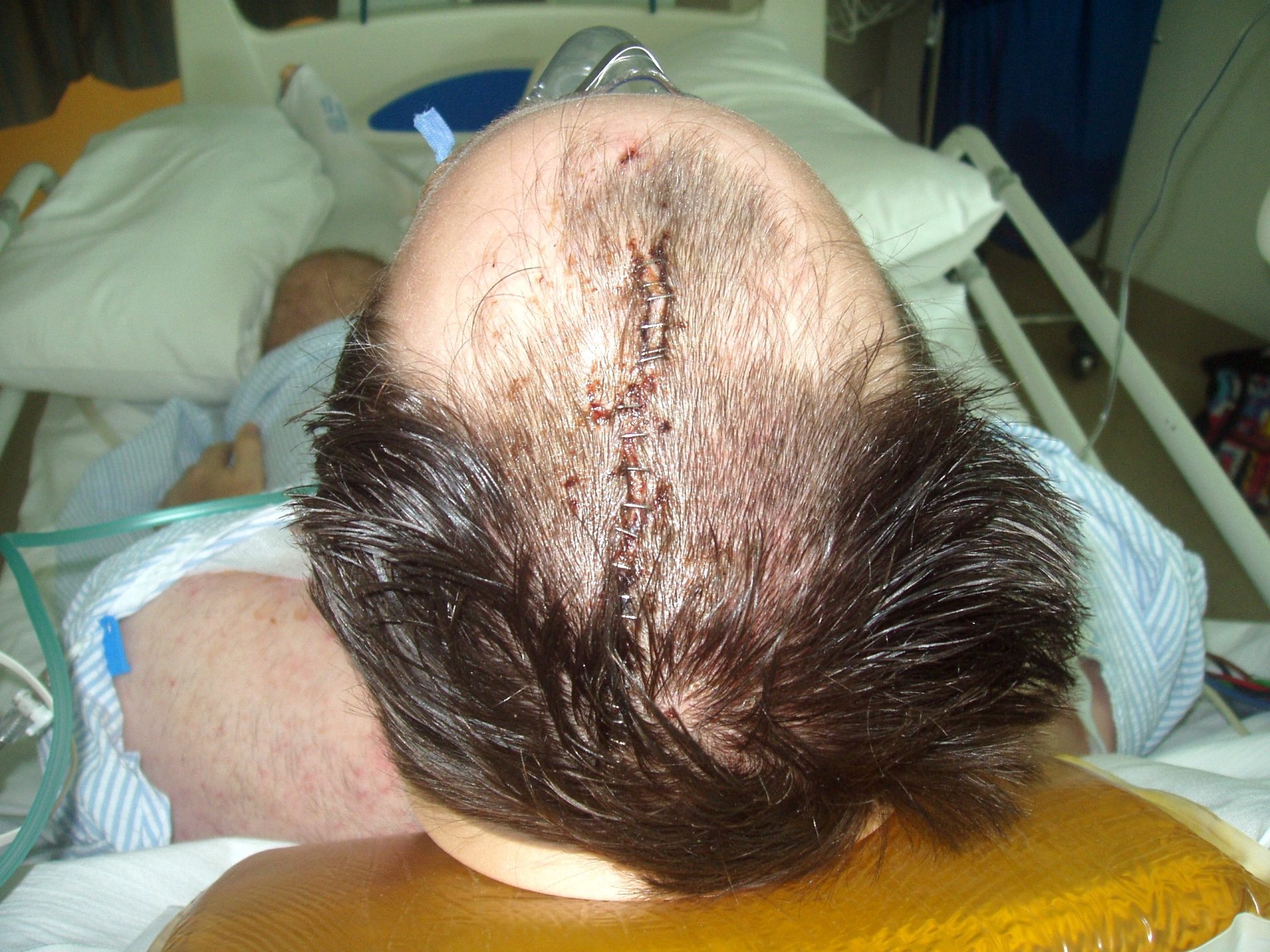
A tsunami hit Samoa on the 29th of September, and I wondered why God would allow this to happen and why he let a tree hit me. Preventing a disaster or accident should be easy for an omnipotent, omnipresent and omniscient being. I had plenty of time lying on my back, looking in the direction of where I thought God was, to come up with a few conclusions about God, the tree and the school.
God created the universe and included a set of laws, and we need to understand these laws and act appropriately to avoid harm. Trees fall over, particularly after a dry summer, and inviting people to stand near the trees on a day with high winds is stupid. I can’t blame God for the actions and inactions of Cedar College.
Royal Adelaide Hospital Spinal Cord Injury Ward.
A few of the patients were older and suffered from dementia, and they spent days sleeping and nights screaming. The lack of sleep made me angry, and I don’t enjoy sleeping near other people, such as in shared public hospital wards. Various friends and colleagues from work visited, and I continued to wonder when people from Cedar College would see me.
As I continued to lie flat in a bed, no one talked about my future. I assumed this position would be how I would spend the rest of my life. My assumption was wrong, and the physiotherapists had me sitting on the bed with my feet on the ground. I progressed to sitting in a chair for up to two hours. A few weeks later, I was ready to be transferred to the Spinal Ward at Hampstead Rehabilitation Hospital. They were located in Northgate, the same suburb as Cedar College.
Hampstead Hospital Rehabilitation Hospital.
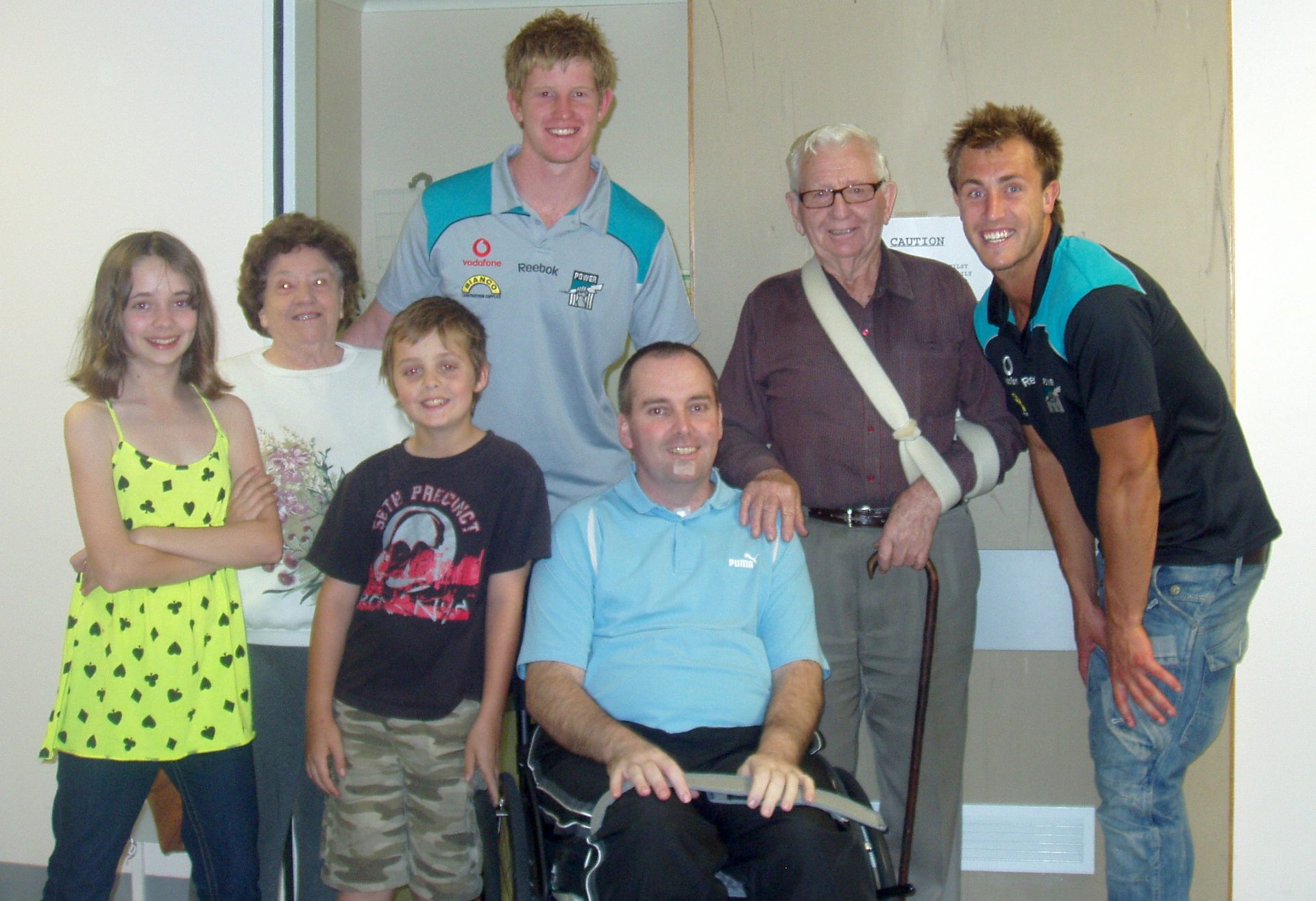
The rehabilitation was a challenge, as it included hydrotherapy, physiotherapy, occupational therapy, gym and having to eat hospital food. It involved learning to take care of the morning routines of toileting, showering and dressing. I slept from 9 pm until 7 am, and each day I felt exhausted. It was great to get my wheelchair and the freedom to push myself around.
I knew the school leaders and the staff all felt bad about what happened. I needed to contact Cedar College and ask them the obvious questions. Why did the tree fall on me, and why did they lack contact? My lawyers advised against this, and I waited for the school to visit.
On December 10, 2009, I attended the graduation of Jasmine and Ben at Cedar College. Various school leaders wished me well, and there was no time for any meaningful conversation. Early in 2010, my wife shared her victim impact statement.
‘The issue I have is that since the time of the accident NOT A SINGLE REPRESENTATIVE OF THE SCHOOL HAS BEEN TO VISIT MY HUSBAND. Need I say more, this is a complete insult to him and me. It’s one thing to have a tragic accident occur on your property, but not to acknowledge it or even speak to the person who has been hurt, is either saying that you deny it happened, or even worse, that you couldn’t care less. The fact that the principal has referred to John in his school newsletters, giving the impression that he is up to date on John’s progress just makes it all the worse.’
Year one anniversary in flowers.
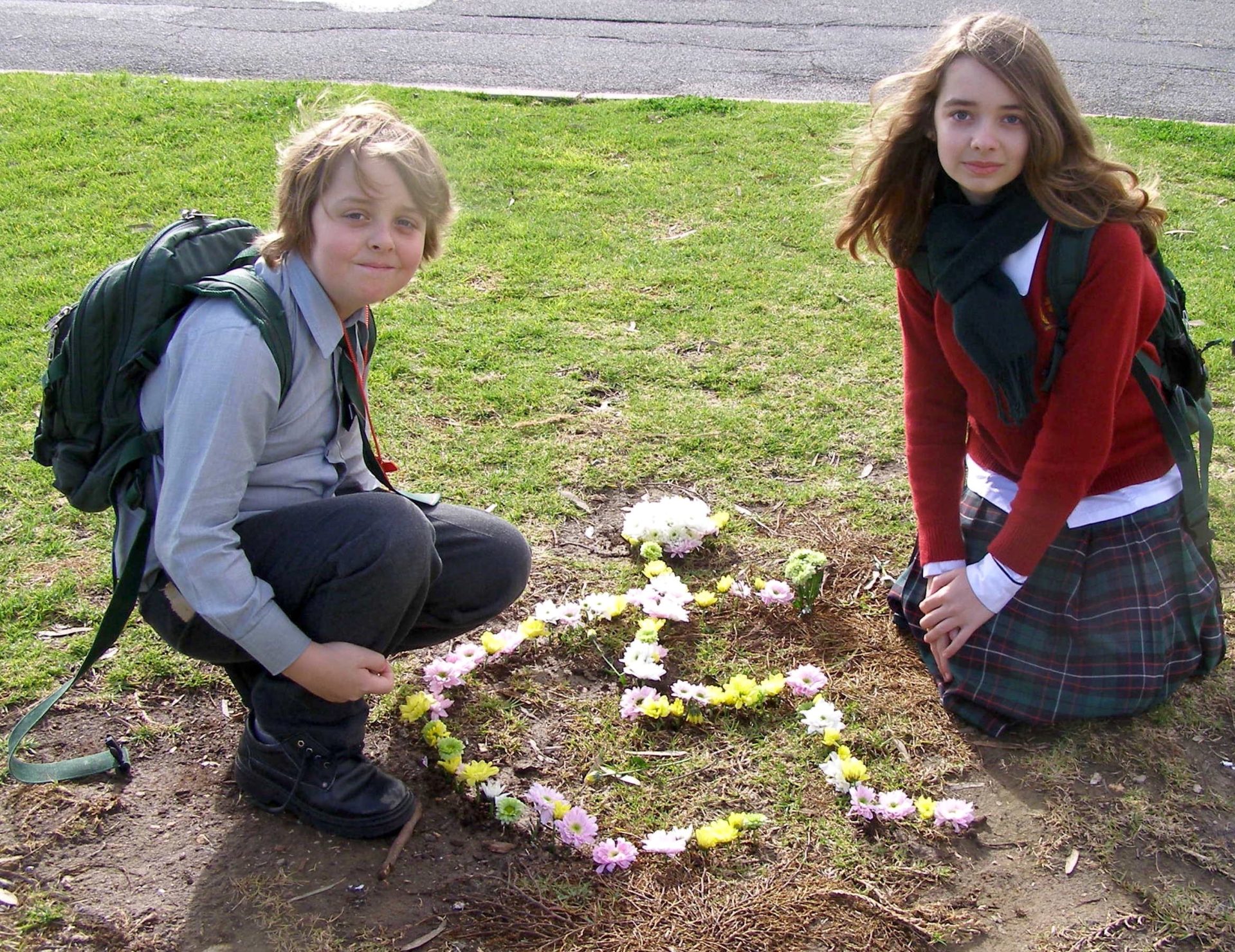
My family gathered at Cedar College on September 11, 2010, at the site of the accident. They picked flowers and arranged them in an image of a person in a wheelchair, a clear symbol of people who have received a spinal cord injury. School leaders walked past, and I am sure they started a conversation and mentioned kind words. I doubt my family listened or cared about what they said. It was a time when the family questioned the school’s values and their leaders.
Chronic Pain and going home.
One Saturday morning in October 2010, I awoke from my sleep. I was only aware of one thing. Pain. Intense pain in my back. I started shouting…
‘help me’, ‘I need help’, ‘I am dying’.
After 100 questions and multiple examinations by many physicians, the cause of the pain was unknown. Pain levels decreased only slightly after taking a hefty dose of pain relief. I was progressing well through rehabilitation and was due to be discharged soon. The pain has never ceased. It is centred around my level of injury on the sternum and back, as if there is a pole stuck through my body.
The MRI scans indicated I was suffering from Syringomyelia. A cyst (or cavity or syrinx) forms within the spinal cord and grows more significant over time, destroying the spinal cord. It is a serious condition as it may result in pain, paralysis and weakness. There were three separate operations over a few months, and the pain persisted.
I was discharged from the hospital in January 2011 and rejoined my family at home. As you may have guessed from the title of this blog, there were no visits from Cedar College during the entire 16 months in the hospital.
